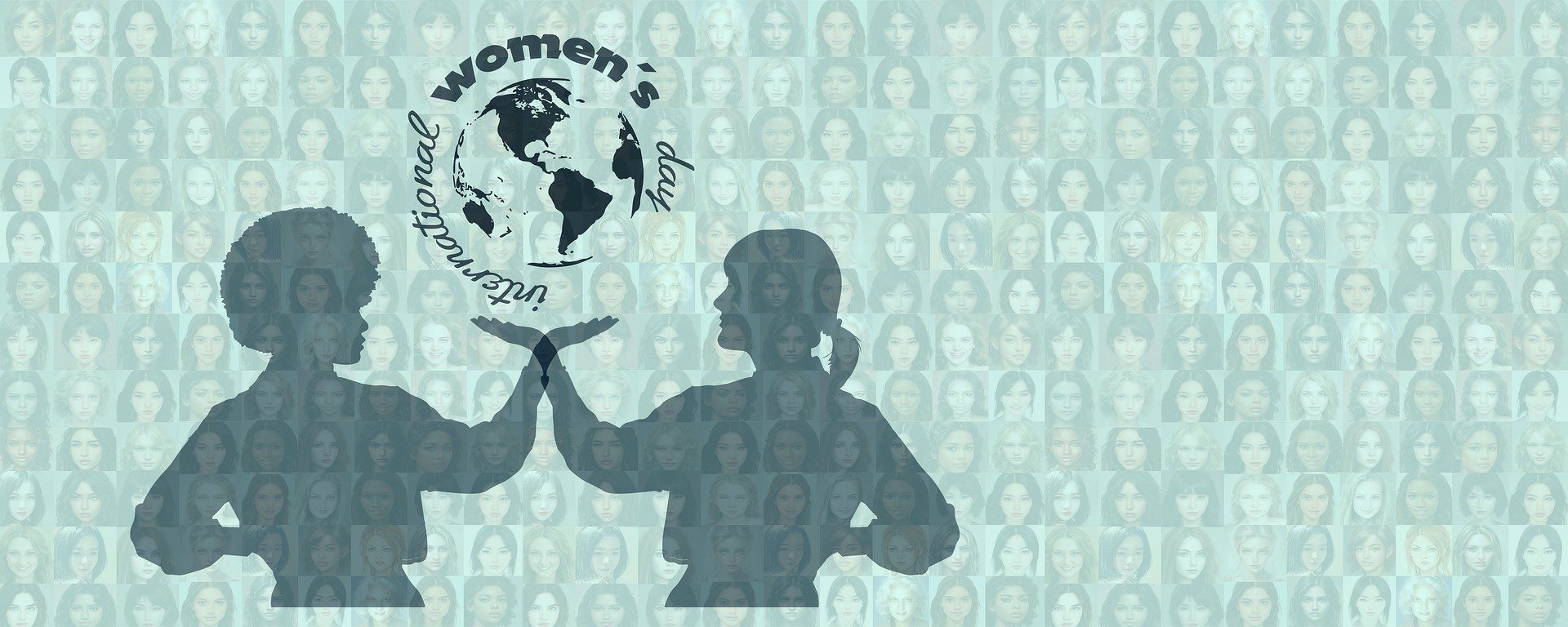Observed annually on March 8, International Women’s Day is one of the most popular holidays celebrated in Kazakhstan. And while this holiday has some old-fashioned elements, March 8 sends a very current reminder to the world of the important roles that women play in every part of Kazakh society.

Photo credit: pixabay.com.
When we talk about Kazakh women, we could easily praise their beauty, highlight their historic achievements and the contributions they have made to our society. While these are all worthwhile endeavors, we should start by recognizing their unique personality, a way of being that balances both the modern and the traditional.

Assel Nussupova
Kazakh women are strong-willed, independent, free-minded, assertive, successful and ambitious. At the same time, Kazakh women are very family-oriented and child-centered. They respect traditional roles and value being good wives and mothers, while also pursuing career and personal goals. Although not all of them prioritize family life, most do. It is often the women of Kazakhstan who are willing to adjust their lives and make sacrifices when the needs of children and other family members collide with their work or social obligations. They are seen as the core of the family.
Historically, the roles of Kazakh women were primarily defined by kinship. A woman was seen as a daughter, sister, wife, mother or grandmother. In all these roles, women were expected to conform to the wishes and needs of their men – fathers, husbands, or even sons. On the surface, such a societal framework could be seen as resulting in women who were weak, subservient and passive, while the men were active, assertive and dominating. This, however, would be a complete misunderstanding of traditional Kazakh gender roles.
The extremely labor-intensive nomadic lifestyle of Kazakh herders, which included taking livestock across enormous distances, resulted in a strict but effective division of labor along gender lines. Men were occupied with wandering with the herd and searching for fresh pastures, while women tended the home. The Kazakh woman was to take care of the household, children and the elderly, but, at the same time, to be in charge of affairs when the male head of the family was away during seasonal nomadic migrations.
Women did not just obediently cook, clean, sew and perform other mundane tasks. They had a voice in many issues related to the family and household. They undertook a wide range of physical activities outside the confines of the home, including setting up yurts, driving carts, loading camels, saddling and riding horses and even shooting with bows and hunting with eagles. Historically, the Kazakh social construct was not about privileging males and stressing female subordination. The division of gender roles was rather a balancing mechanism in a nomadic lifestyle, a form of mutual dependency.
From a very young age, Kazakh girls were taught the necessary skills and attitudes to carry out their future roles as wives and mothers. But at the same time, young girls were also taught to be physically and morally strong. They learned how to saddle a horse and how to stand up for themselves. Alongside boys, girls participated in various musical and poetic contests. They also had athletic outlets that involved co-ed participation. For example, famous Kazakh long distance horse races known as Baiga and equestrian sport traditions such as Kyz Kuu (Chasing and Kissing a Girl) could not take place without a young girl actively participating in them.
For centuries, Kazakh women also had more personal freedom and a greater ability to voice their opinion than women in many other neighboring countries. Unlike the women of some neighboring nations, Kazakh women never covered their faces with veils and never lived in seclusion. This level of liberty was enjoyed even during the time when many nomadic Kazakhs abandoned their pagan beliefs and embraced Islam.
Was ancient Kazakh society fully egalitarian? No. But neither was it as oppressive to women as many ancient cultures. Yes, historically a Kazakh woman “accepted” a role with limited freedom in exchange for the man to take full responsibility for her welfare and the welfare of the family. Yet, the women never had to “obtain” their husbands’ permission to participate in social and public affairs and they never had to ask their husbands to “grant” them the right to communicate with other male members of their families, practices that are common in some nearby nations.
After a long history of being nomadic, Kazakhs began to settle in villages, leaving behind the far-ranging life of their ancestors. This change resulted in the abandonment of the social “subordination” norms that had been established between Kazakh men and women in order to sustain a life of nomadic herding. The new era of living in stationary communities brought with it new social norms, new standards of behavior, and new roles for the family, women and Kazakh society as a whole. While some of this change in lifestyle was a natural progression in society, much of the process was forced by the Soviet regime with its insistence on the “sedentarization of the nomads.”
The Soviet Era saw women embracing more educational and work opportunities in Kazakhstan but this should not be misinterpreted as the Soviet Union liberating the women of Kazakhstan. Indeed, Kazakh women encountered profound suffering at the hands of the Soviet regime – impacted by hardships ranging from their men being forced into military service to mass immigration to other nations to a catastrophic famine at the beginning of the Kazakh “Sovietization.” Kazakh women had to be strong in the face of repeated challenges in the days of the USSR. During the devastating days of World War II they had to endure their men being sent off to fight in the Soviet Army and their nation serving as a major supplier of food, fuel, iron and other strategic war resources.
While the Soviet “modernization” did impact the lifestyle of Kazakh women, it did not alter their underlying personality: Kazakh women remained unapologetically feminine, strongly devoted to their families and cultural traditions while remaining free-spirited, strong-willed, and active, and willing to voice their opinions to both women and men.
Since Kazakhstan gained its independence, the varied roles played by Kazakh women have become even more noticeable. Strong, bright Kazakh women are showing their skills in a range of industries and providing examples and inspiration for the next generation of girls. Consider just a small sample of Kazakhstan’s modern, accomplished women:
– Ardana Botay, the first Kazakh female military jet pilot, an extraordinary pioneer in a male-dominated field
– Samal Yeslyamova, an internationally recognized star who received the Best Actress award at the Cannes Film Festival
– Zhansaya Abdumalik, a phenomenally talented chess player, the first woman from Kazakhstan (and the 39th in the world) to earn the title of Grandmaster
– Bibisara Assaubayeva, the youngest ever World Chess champion, who earned the title at the age of 17
There isn’t space here to list all the amazing Kazakh women who have done outstanding work as scientists and researchers, as leaders of financial institutions, as artists, athletes, IT-developers, educators, entrepreneurs and more. And we can’t forget the political roles played by Kazakh women, successful ministers, vice-ministers, leaders of local governments and congresswomen helping to shape the future of the nation they love. From the traditional yurts of the ancient Kazakh Steppes to the modern halls of power, Kazakh women have shown themselves to be bold and resilient, balancing active roles in their communities with caring for their families. Happy International Women’s Day to these special Kazakh women and to women everywhere!
The author is an analyst with a Master’s Degree in Economics from Georgetown University in Washington, DC, with more than 20 years of experience working for the Kazakh government. She focuses on macroeconomics, commodity, and financial markets, as well as economic and social policies in Kazakhstan and globally.
